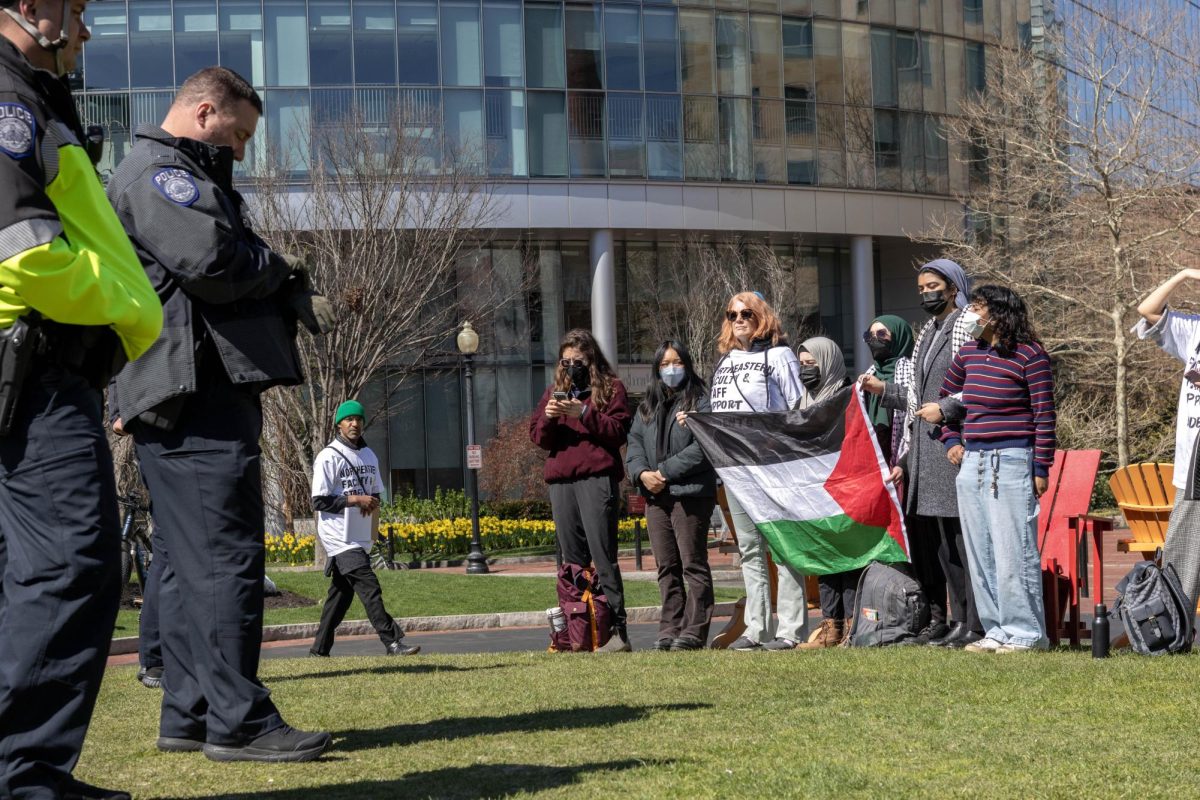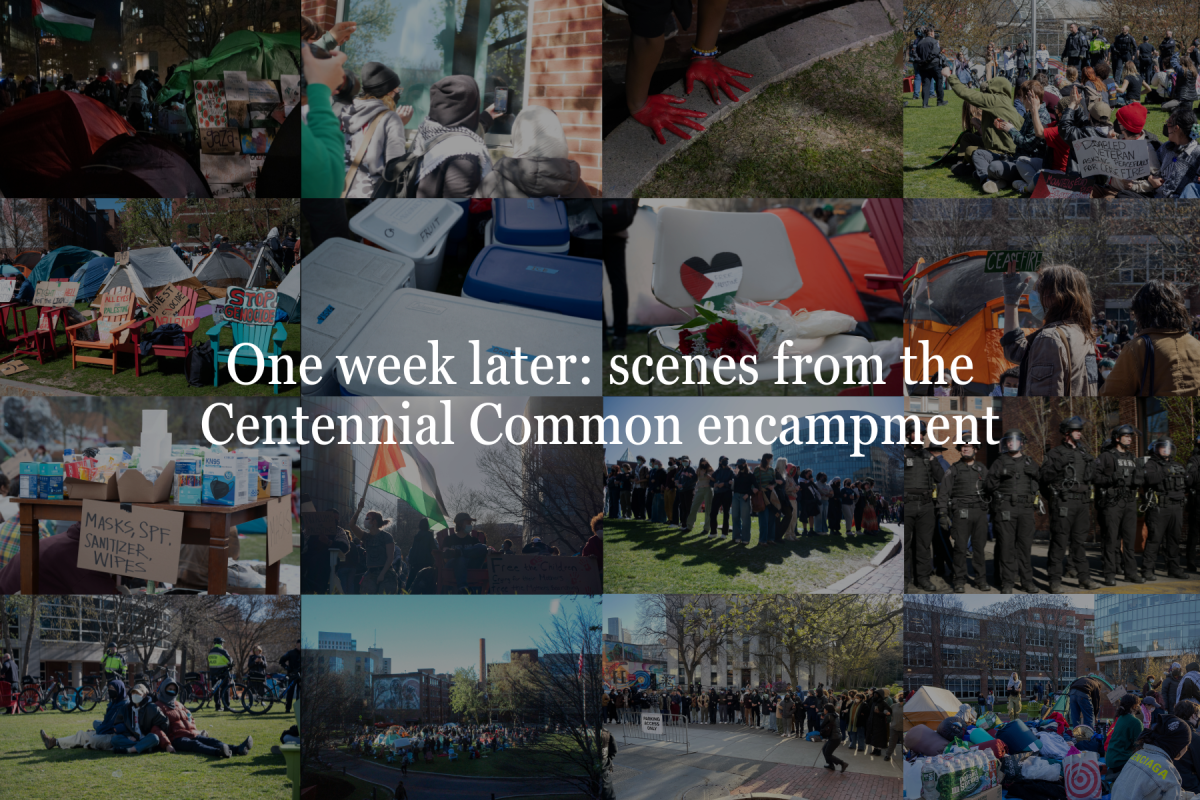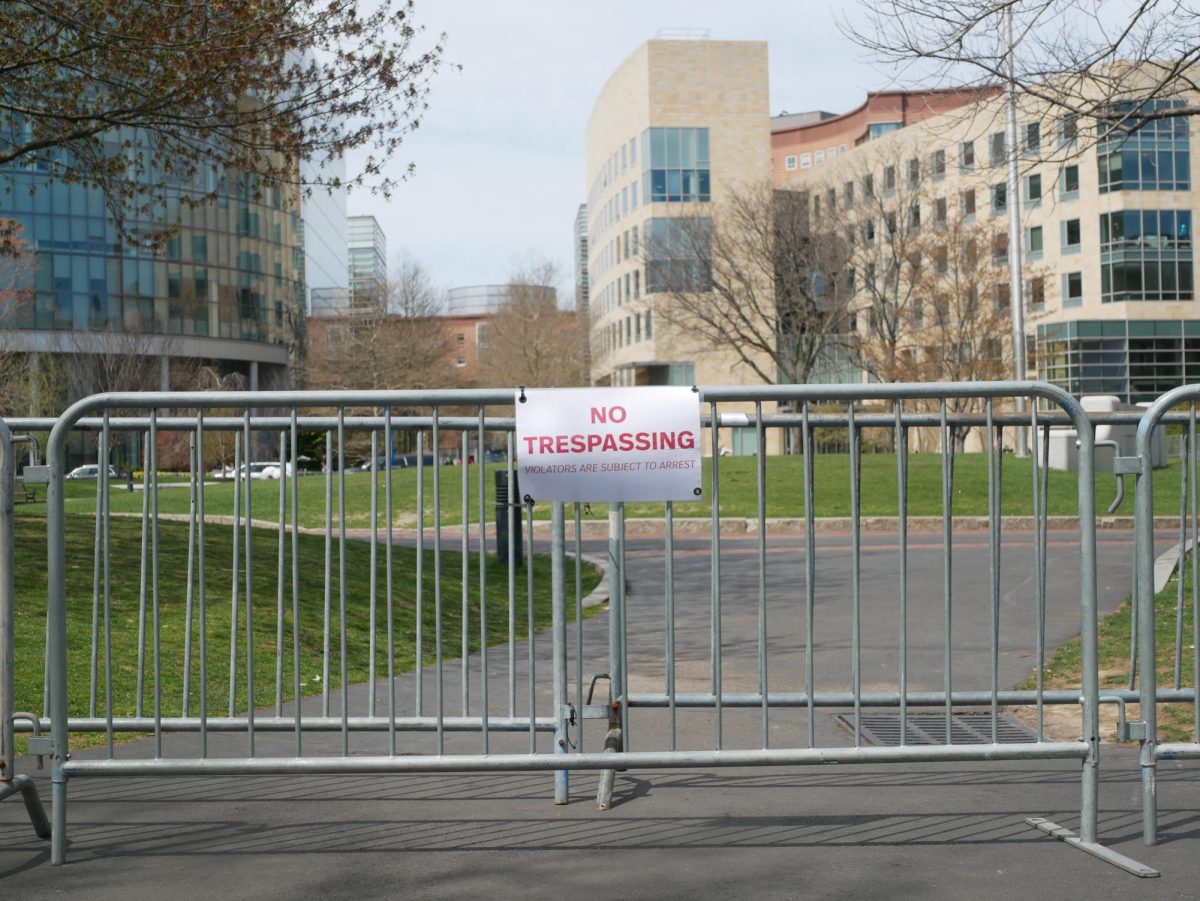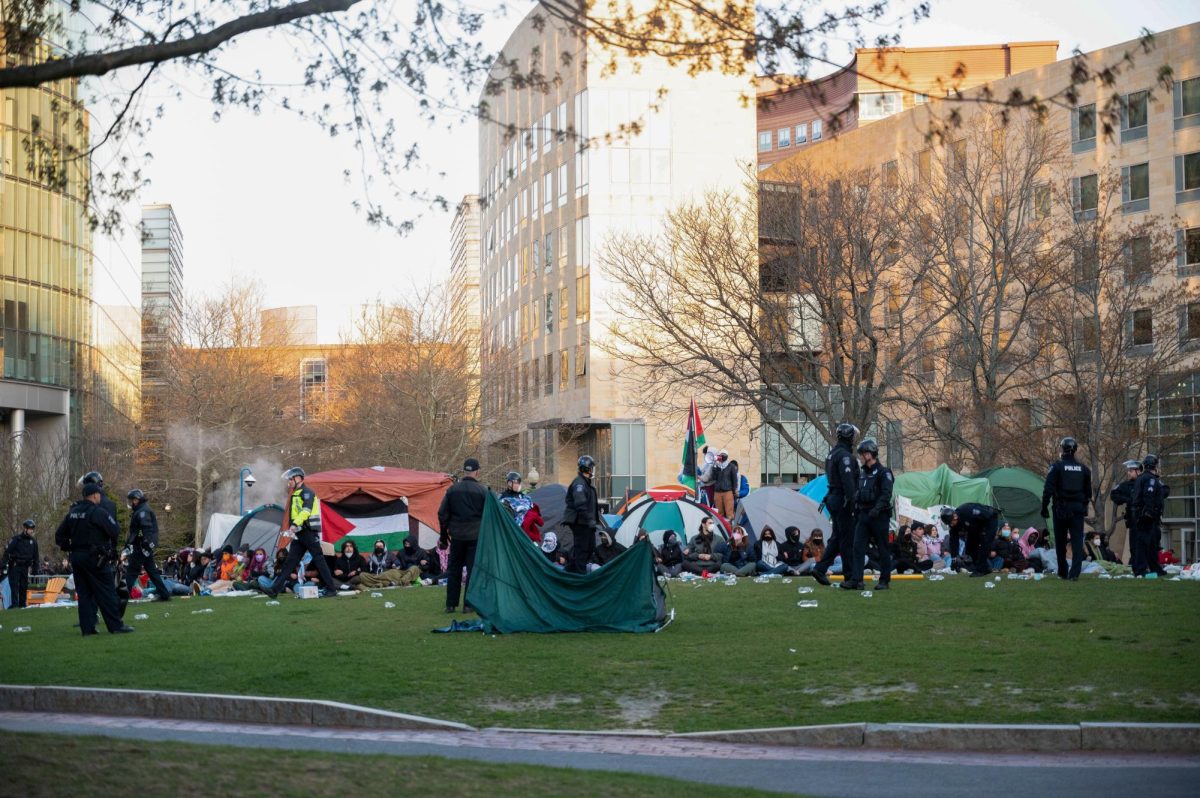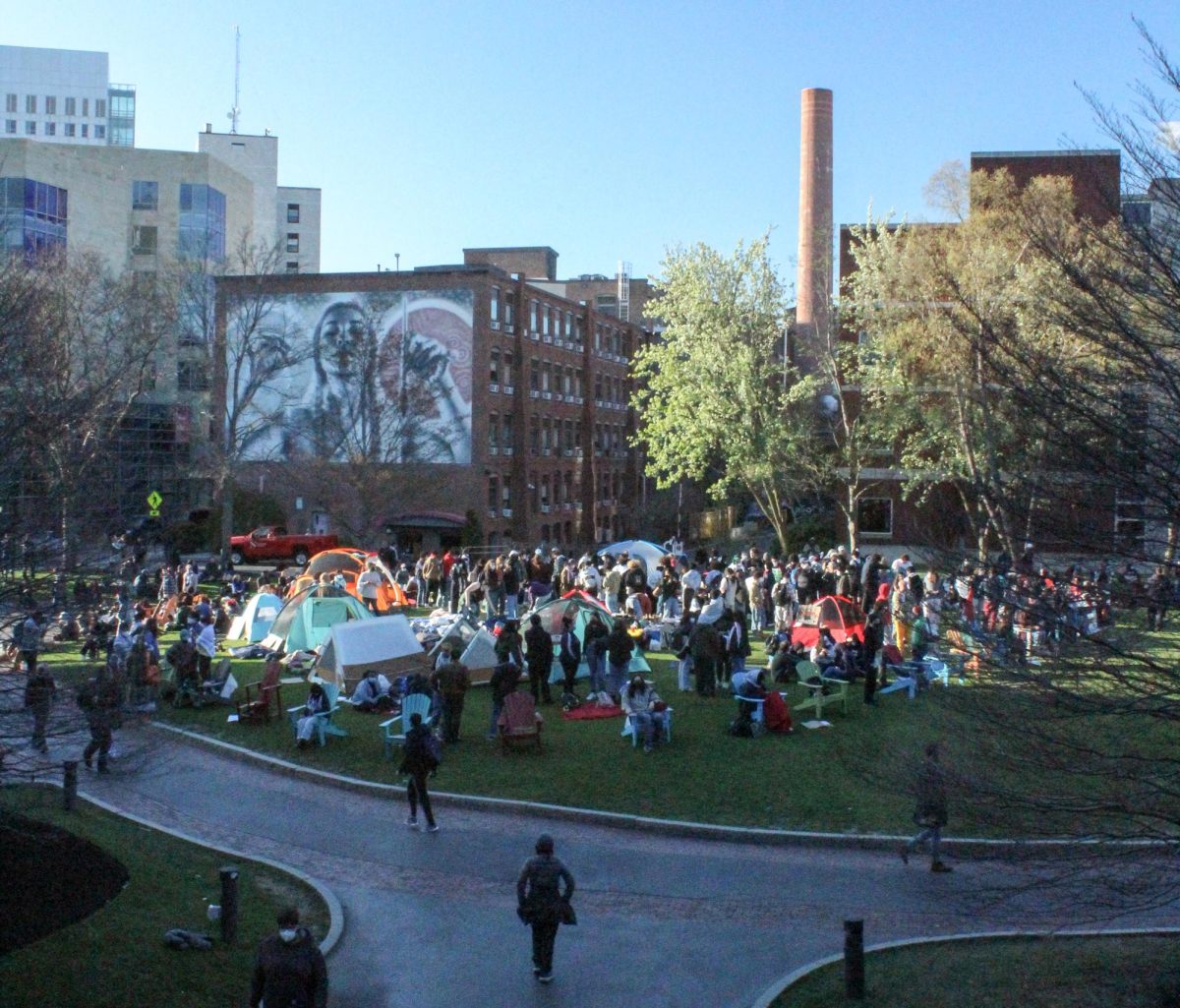By Zac Estrada, News Staff
Candidates for Student Body President faced off Tuesday night in Curry Student Center in the second of two debates, explaining their opposing plans for Student Government Association (SGA) one last time before polls opened yesterday.
SGA members Sean Maloney and Michael Sabo laid out their stances on some of the biggest issues for Northeastern students and sharply differed on what role student government would play under their leadership.
“I disagree with the notion that by just quoting governing documents that there’s an assumption that my opponent knows what goes into being a student body president,” Sabo said, criticizing Maloney as he described the position as SGA’s chief executive officer.
That early statement set the tone for the debate, which was moderated by Vice President and Dean for Student Affairs Ed Klotzbier, and sponsored by Northeastern Resident Student Association (RSA) and The Huntington News.
Sabo jumped on Maloney for solutions to SGA communication. Sabo has run his campaign on promoting informal initiatives that do not necessarily need the bureaucratic supervision of the association.
“Sometimes SGA is not the center of the universe every time,” Sabo said. “SGA cannot be the solution to all of our problems. I think students are going to look for someone who can branch out, look for new partnerships.”
Maloney defended the association’s role in student involvement and promoted his plans to increase cooperation directly to students.
“SGA is not representing students as it should be,” Maloney said. “Bring the issues to us, we will fix them.”
Maloney also pledged to be personally available through heavily advertised office hours.
“I will be more accessible than any student on this campus,” he said.
Both candidates agreed communication with Northeastern administrators and faculty needs to be improved.
Maloney said communication between administrators and students needed to be more direct than vaguely worded emails. Sabo added his push for accountability.
Sabo said a Northeastern student group told him it was easier to hold an event at Boston University than it was at Northeastern.
“We need to work with student activities to make sure they’re more efficient,” Sabo said.
Maloney said some of the restrictions imposed by Student Activities should be reviewed.
“All student organizations should have the power to put on a great event to improve student life, without having to jump through many hoops and go through a long tedious event that in the end they may not be able to have an event because it takes too long,” he said.
“We will be holding administration accountable for what they do,” Sabo said. “SGA’s job is to be your voice and to relay your concerns to administration, no matter how small.”
Maloney, again, endorsed the referendum to create a student trustee to give undergraduates a voice on Northeastern’s Board of Trustees.
“They don’t have a big enough voice in student government,” Maloney said.
Sabo’s campaign pledges include improving communication for students on co-op or studying abroad, something he believes is sorely lacking now.
“You shouldn’t have to, if you’re on co-op in the Boston area, have to settle for a phone appointment,” Sabo said.
Maloney and Sabo found common ground on SGA’s transparency policies, as both believe finance board meetings should be kept private. Maloney backed down on a previous campaign promise to open the meetings to all students. Both also agreed executive board minutes should be kept confidential, although Sabo said a summary or edited minutes should be made available.
Klotzbier asked the candidates whether or not they would consider moderating a debate, as current president Ryan Fox did last week. Fox’s participation in that debate caused three political student organizations scheduled to sponsor the event to drop out after the groups and SGA failed to reach a last-minute compromise on participation terms.
Maloney and Sabo both said they are not planning to moderate any future debates with presidential candidates.
Sabo, in particular, took issue with the way the dispute was handled. He said he was frustrated the association could not reach a compromise.
“Why are we driving these people away?” Sabo asked. “It’s that all-or-nothing mentality. If you can’t get 100 percent of what you want then we’re going away from the table.”
Sabo said this type of practice executed by SGA is causing rifts within student groups.
“These are needless, fractured relationships that won’t happen under my administration,” he said.
During open discussion, Fox addressed Maloney and Sabo and asked them why they chose to denounce SGA and some decisions made publicly, instead of when they were first brought to the senate for discussion. Fox asserted the candidates “threw” SGA and other executive board members “under a bus.”
“Where was this criticism when you were sitting on the executive board this year?” Fox asked. “Why are you not quick to criticize those decisions previously but quick to criticize them publicly? Sometimes you have to defend tough decisions.”
Sabo said he spoke up when others didn’t.
“Some people didn’t care, some people were fine to go along,” he said. “Sometimes the entire executive board disagreed. I don’t think that I’ve thrown anyone under a bus. I’ve given credit where credit is due. I don’t think that’s an accurate assessment.”
Maloney, who as executive vice president is not allowed to express his personal opinion while chairing senate meetings, also disagreed with Fox’s sentiments.
“I don’t believe in the leadership qualities that I must always be speaking my mind,” Maloney said. “I don’t believe in repeating statements already made.”
Elections run until noon Monday. A winner, as well as the outcomes of two referenda, will be announced later that evening.
SGA’s election committee is expecting voter turnout as high as 30 percent. The lowest voter turnout can be is 20 percent, which will prompt the committee to vote to extend the voting period up to five days.


